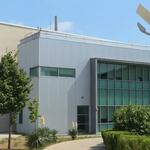State Duma Deputy Gennady Onishchenko, commenting on the adoption by the OSCE Parliamentary Assembly of the anti-Russian resolution on Abkhazia and South Ossetia, said that the real threat to the entire region was the military microbiological laboratory in Georgia.
Earlier, the Political Affairs and Security Committee of the OSCE Parliamentary Assembly adopted a resolution condemning the actions of Russia in Abkhazia and South Ossetia and calling for the cancellation of the decision of the Russian Federation to recognize the independence of these republics, calling it illegal. The author of the draft resolution is the Georgian parliamentarian Sofia Katsarava.
"Of course, I fully share the position that the militarization of Transcaucasia really represents a very real threat today, but, unfortunately, this resolution does not even mention the military-biological base, located 40 kilometers from Tbilisi ... This Georgian laboratory there is a real threat to security and human rights in Georgia and not only in it: in the whole Transcaucasia and in the whole Black Sea region, and these are 12 countries, including Turkey, Russia, Ukraine ", said RIA Novosti former head sanitary doctor of the Russian Federation, Doctor of Medicine, Gennady Onishchenko.
The parliamentarian has explained that the laboratory allows working with the most dangerous natural viruses and microbes that are known to man. As Onishchenko has emphasized, the work in the laboratory is carried out not only with the viruses, but also with their vectors - ticks and mosquitoes. "There is also a purely threat from any accident at this laboratory, and this is a malfunction of ventilation, insufficient filter operation or just a disease among the laboratory personnel," the deputy added.
The Russian side has repeatedly expressed concern about the activities of the Pentagon "in placing its biomedical laboratories in close proximity to Russian borders." In 2015, the Foreign Ministry mentioned in this regard the so-called "Lugar Public Health Research Center" in the suburb of Tbilisi, where, according to the Ministry of Foreign Affairs, "prescribed" the medical research unit of the US Army.
Moscow believes that the US and Georgian authorities are trying to hide the true content and focus of the activities of the military unit of the US Army, which studies particularly dangerous infectious diseases. The Georgian side considers the fears in vain and states that the laboratory deals exclusively with scientific research. The Russian Foreign Ministry said that Moscow would request official explanations from the United States about the activities of the laboratory in Georgia, where they could conduct lethal experiments on people.
The Georgian side offered to give Russian experts the opportunity to inspect the Lugar laboratory. Moscow welcomed this initiative. In June, Russian Deputy Foreign Minister Sergey Ryabkov noted that a visit by Russian experts to the biolaboratory in Georgia was being worked out, and the parties would agree on the parameters. However, after complicating relations with Georgia, Ryabkov said that the question of a visit to the biolaboratory by Russian experts, although not removed from the agenda, but is not a priority.







